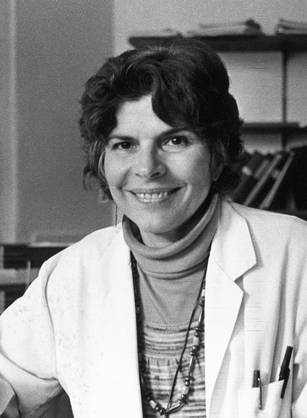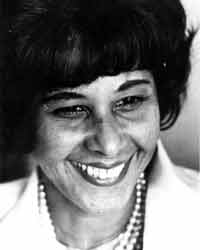Every year, Americans celebrate National Hispanic Heritage Month, starting September 15th through October 15th. We want to highlight 6 Hispanic and Latino American physicians who have evolved medical history.
Dr. Helen Rodriguez-Trías, MD (1929 - 2001)

Dr. Helen Rodriguez-Trías was a Puerto Rican American who helped expand public health services for women and children in minority and low-income communities around the world. She also was involved in the Puerto Rican community in New York City, educating other health care workers of the needs of their community and encouraging them to voice their opinions to the administration to enact change. She also was a strong advocate for women’s rights, founding multiple women’s associations, like Committee to End Sterilization Abuse, Women's Caucus of the American Public Health Association, and Committee for Abortion Rights and Against Sterilization Abuse.
Dr. Julio Frenk, MD, MPH, MA, PhD (1953 - )
Julio Frenk is a Mexican American, who is currently the president of the University of Miami. He is also a professor of public health science, a professor of health sector management, and sociology professor. He’s also been a Dean of the Harvard T.H. Chan School of Public Health. Early on in his career, he introduced a national health care program called Seguro Popular, which expanded health insurance to millions of Mexicans. He was also the founding director-general of the National Institute of Public Health in Mexico.
Dr. Ildaura Murillo-Rohde, PhD, RN, FAAN (1920 - 2010)
Ildaura Murillo-Rohde was a Panamanian American nurse in San Antonio, Texas in the mid-1940s. In Texas, she noticed the lack of Hispanic nurses in the community and sought to bring more diversity to the area. In the 1970s, she gained a federal position reviewing research and educational grants. Later on in life, she became a professor and then the Dean of Nursing at SUNY Brooklyn. She founded the NAHN, National Association of Hispanic Nurses, which aids Latino nurses in gaining higher education to serve their communities.
Dr. Baruj Benacerraf, MD (1920 - 2011)

Baruj Benacerraf was a Venezuelan American immunologist. Early in his career, he worked at a military hospital and started conducting research at Columbia University College of Physicians and Surgeons. Eventually he became a professor at Harvard University Medical School. He made a discovery that our immune system rejects damaged or abnormal cells, which allows our bodies to properly function. This explained the mechanisms underlying autoimmune diseases like MS and rheumatoid arthritis.
Dr. Antonia Novello, MD (1944 - )

Antonia Novello became the first Hispanic woman to become Surgeon General of the United States in 1990. Previously she had two decades of public health service experience at the National Institutes of Health, where she helped draft legislation for organ transplantation. She also focused on pediatric AIDS. As surgeon general, she focused on the health of young people, women, and minorities. One of her most well-known campaigns was against the tobacco industry. After Surgeon General, she was a representative of the United Nations Children’s Fund and eventually became a professor at John Hopkins School of Health and Hygiene. She is currently commissioner of the New York Department of Health.
Dr. Serena Auñón-Chancellor, MD, MPH (1976 - )

Serena Auñón-Chancellor is a Cuban American physician and NASA astronaut. She was hired by Nasa as a flight surgeon and spent 9+ months in Russia supporting medical operations. During her time on orbit, she was part of a crew that did hundreds of experiments in biology, biotechnology, and physical science. Currently she covers medical issues and on-orbit support in the Astronaut Office.
Did any of these medical professionals inspire you? Check out our blogs for AAPI Heritage Month, Women's History Month, and Black History Month highlighting other physicians.
